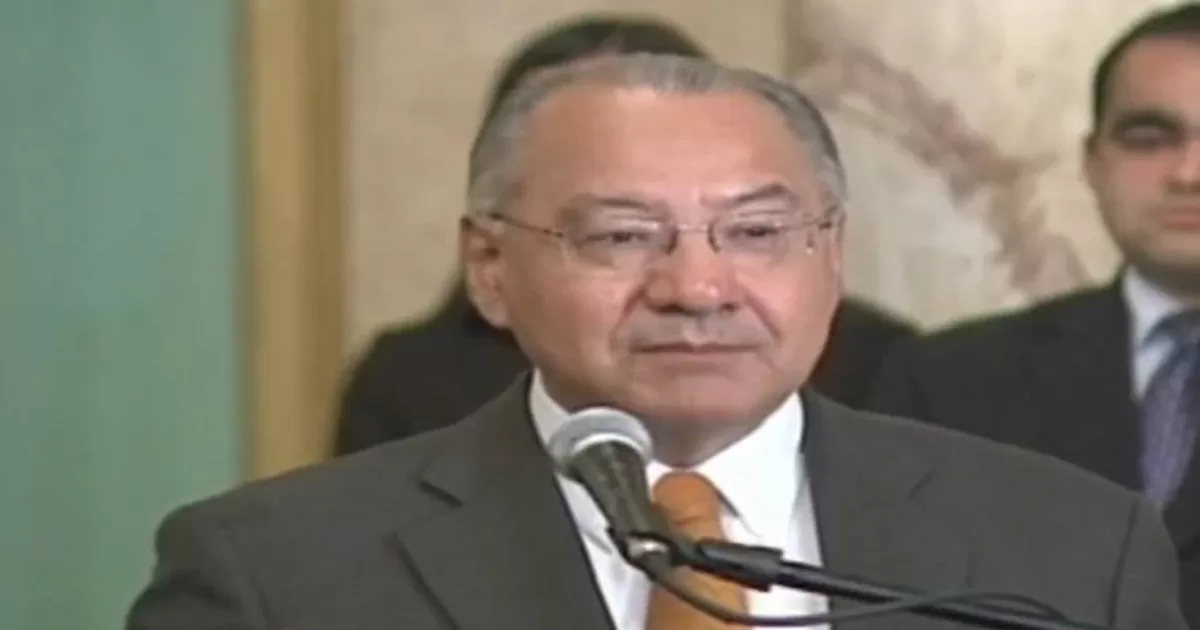Mauricio Macri sought to maximize the effect of the “historic resignation”. His announcement, carefully calculated in form and “timing”, seeks to generate an impact on the internal Together for Changewithin Peronism and, paradoxically, affirm his status as a political leader who preserves the role of judging whether his “heirs” are acting correctly or not.
The move appears as the logical and inevitable consequence of the process that the internal opposition had taken. And yet, it is still surprising. In fact, in the militancy of the PRO it is perceived a feeling of disappointment after the ad.
Although it is more probable that the most disillusioned sector is Peronism, and in particular Cristina Fernandez de Kirchner. With this play, Macri tries to make the Front of All lose its great unifying element: waving the specter of the return of “the right” as a way of keeping the fragments of a coalition together, there are fewer and fewer elements in common.
The truth is that the suspense around whether Macri would be a candidate had gone on too long. After what Horacio Rodriguez Larreta officially confirmed his candidacy, and that the very Patricia Bullrich said that his presidential aspiration did not depend on a decision by Macri, it was already difficult for the former president to announce a candidacy without causing an earthquake in the PRO.
From this point of view, it was difficult to imagine Macri “going down” to dispute – and risk losing – in an internal party. Even if he won a STEP, there would be fissures, bruised egos and exposed differences in an exhausting internal.
So that his “resignation”, paradoxically, has the intention to regain leadership in the opposition space: Macri wants to be happy to have generated a political party with the capacity for leadership renewal, without being tied to the situation of a personalist leadership. In other words, he feels he has more to gain by appearing as the leader who steps aside of his own free will so as not to outshine the new figures, rather than appearing as a former president challenged by his own second lines, who see him as a representative of “the old”.
The video with the announcement of his resignation from the candidacy, on Sunday morning, came after having held meetings with the leaders of the PRO
Half decision, half resignation
The immediate reaction of Horacio Rodríguez Larreta and Patricia Bullrich confirm that perception. Both expressed relief for the “resignation” without half measures and dedicated to Macri the typical typical ambiguous praise that is said to someone who, if he had not made that decision, would have been a nuisance.
The video came after a series of “face-to-face” meetings between Macri and the pre-candidates, in which -it is now clear- this decision was discussed. It was obvious that neither Rodríguez Larreta, nor Bullrich nor Mary Eugenia Vidal they were surprised.
The text was carefully written, with paragraphs designed for various recipients and with calculated effects. The staging, with a country scene and the sound of water that gave it a “zen” touch, the calm and parsimonious tone of the speech, everything was deliberately opposed to the exalted style of Cristina Kirchner. The choice on a quiet Sunday morning ensured that the ad became the topic of the day, dwarfing all others, including Alberto Fernández’s impending meeting with US President Joe Biden.
But what Macri fails to clear up is the big question: what was the underlying reason? the real one, what led you to make the decision? Because although there were many factors that led him to “resign”, it is also true that he, until now, had behaved like a candidate in the campaign.
Every public appearance, the letters that he made known in the days of “banderazos”, the tone of the interviews that he gave to the “friends” media and, above all, the presentations of his book “For what”, all had the typical elements of someone who is paving the way to return to power.
In fact, he had transcended his anger at every suggestion that he should “retire” from politics. The most notorious case had been that of Emilio Monzothe former president of the Chamber of Deputies, of Peronist origin, to whom Macri owes to a large extent the political armament in the interior of the country during the 2015 campaign. Monzó had placed Macri and Cristina Kirchner on an equal footing as two exponents of the old politics, of the maintenance of the crack that had to be left behind.
Macri did not forgive him, to the point that in interviews he insinuated that he had suffered his political sabotage during the presidential administration.
Then, a year ago, when he was presenting his book, Macri had made a vehement plea in favor of a new period of government that should be reformist, without concessions to dialogue with corporations. “Either we are the change or we are nothing” It was not just a slogan, but many interpreted it as an explicit disavowal of the style, the government program and Rodríguez Larreta’s own candidacy.

Since the internship in the PRO was launched, Macri has shown signs of greater political affinity with Patricia Bullrich
On that occasion, his criticism of those who “do not know how to play as a team” and those who do not have the humility to accept a role other than that of leader seemed to have the undeniable meaning that he would not accept challenges to his own leadership. Resorting to soccer analogies, he had given the example of how in Boca Juniors had been encouraged to leave out four idols -including Beto Mártico– because “they thought they were more important than the club”.
The “mirror” of Cristina Kirchner
It is because of this background that the “resignation” is not without its share of surprise. Macri never behaved like an “ex” resigned to writing his memoirs. The very title of his previous book –“Second time”– He announced that he had been left with a desire for revenge to return to the Casa Rosada.
Why quit then? It is a field of infinite speculation, ranging from the suspicion that his candidacy has a “low ceiling” in the polls -with which he could lose against Peronism- until, once again, his behavior has a certain “mirror” relationship with Cristina Kirchner.
From his environment, the thesis has always slipped that, in reality, Macri was hesitant about returning and that, among the factors that encouraged him to return, was the possibility of facing and defeating the Kirchnerist leader in a “hand to hand “historical.
From this point of view, Macri would have lost his main motivation, given the previous resignation – or “proscription” – by Cristina.
Also, of course, there is another possibility, and that is that Macri has tried to influence the Kirchnerist leader. Without Macri in the race, Cristina herself would also lose motivation to run: she would no longer be able to justify her speech about the need to stop “a return to the past” and, furthermore, she would risk having to debate and eventually be defeated by opposition figures who she does not consider her level -which not only involves Rodríguez Larreta and Bullrich but also the libertarian Javier Milei-.
This is what led to the first reactions of analysts to consider that Macri left Cristina out of contention. “The decision not to be a candidate almost reduces to zero the possibility that CFK is a candidate,” wrote the political scientist Lucas Romero. as long as Andres Malamud praised the strategic move: “When Cristina announced that she was not a candidate, her influence over the FdT melted. When Macri announces that she is not a candidate, her influence over JxC skyrockets.
The hours after the announcement seem to confirm these presumptions. From Dominican Republic, where he is to participate in the Ibero-American summit of presidents, Alberto Fernández’s entourage evaluated Macri’s move as a positive event. They believe that it will have the inevitable effect of influencing Cristina’s final decision. “She did me a favor,” summarized the President before his relatives.

Macri’s move not only has the effect of influencing the internal opposition itself but, above all, of conditioning the electoral strategy of Peronism
The great elector?
What will Macri’s future be? If the answer depended on Rodríguez Larreta and Patricia Bullrich, the picture is quite clear: they imagine it far away. Already last year the leader of “the hawks” had said that the ideal role for Macri would be that of a kind of “itinerant ambassador” to open markets for Argentine exports.
And Rodríguez Larreta made some similar insinuation in his first “post-resignation” message, declaring that “his management experience and his vision of the world will be fundamental for the time to come.” Does he envision him as chancellor or with some prominent diplomatic destination such as the embassy in the United States? It is, after all, a classic way out that is resorted to so that former leaders do not become a nuisance.
But Macri, for now, is focused on the short term. More specifically, in influencing the internship of Together for Change and, incidentally, in that of Peronism. For starters, your ad automatically unlocks the candidacy of María Eugenia Vidal, I have your express blessing to run.
Vidal measures low in the polls, but disputes a voter profile that can subtract points from Rodríguez Larreta. With which, indirectly, he could play a role in favoring Bullrich, the candidate with whom Macri has shown the greatest political and personal affinity.
In case there were any doubts, there was a message between the lines that was duly decoded in the PRO: the mention of “the courage of those who expressed support when it was much easier to keep quiet than to show up” has a personal touch: when Macri was summoned to testify to Dolores In the case for spying on relatives of the ARA San Juan sailors, the entire PRO staff was with him… except for Rodríguez Larreta.
There are other clues in Macri’s speech: his allusion to the need to put an end to “messianic leadership” It does not just allude to Cristina Kirchner, but also Javier Milei, the candidate who can steal “right” votes from Together for Change.
His other strong phrase, the one that alludes to the fact that “there will never be a puppet as president” seems to have an obvious addressee in Alberto Fernández, but it is not limited to that case. It also involves possible heirs designated by Cristina, for example a possible candidacy of Axel Kicillof or Eduardo de Pedro.
But, above all, what Macri insinuates in his message is that he does not imagine a minor role for himself. On the contrary, for the race at PASO he wants influence as a “great voter”. And then, in an eventual government of Together for Change, he wants to maintain a role of “guarantor” that the management is on the right track.
Paraphrasing another historic resignation, Macri’s message is that he is willing to leave office, but not leadership.


